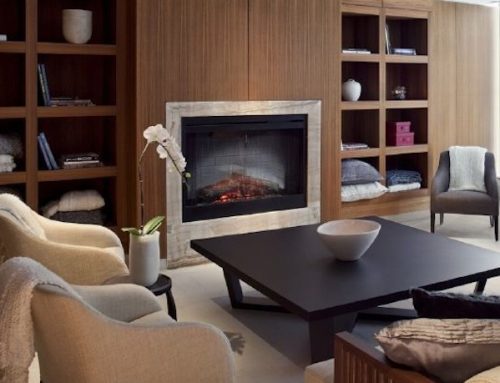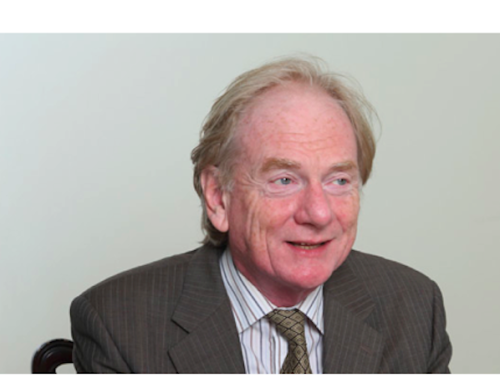The Chairman of the Mexican Association of Resort Developers (AMDETUR), Patricia De la Peña, presented her report on the Association’s activities in March-September 2015, in a well-attended and lively meeting that reviewed proposals on how to make the tourist industry work better throughout Mexico and beyond its borders.
Regarding AMDETUR’s relationship with the Ministry of Tourism, De la Peña remarked that the Association had led some phases of the work of creating a National Tourism Certification System, which is an initiative of that ministry and part of the National Development Plan. Its purpose is to promote the quality of tourist services in 9 sub-sectors. “Regarding the lodging sub-sector, we presented our viewpoint that the system is unnecessary and redundant in light of existing mechanisms,” she said.
She also highlighted AMDETUR’s meetings with representatives of the Organization for Economic Cooperation and Development (OECD), to discuss issues such as Cruise Tourism, access to financing and cutting down on red tape, and also its participation in a work group on drafting the NOM-07-TUR-2002 tourism industry standard, which will establish guidelines on civil liability insurance for providers of tourist lodging services, for the protection and safety of tourists and users; as well as a committee in the process of reviewing the ISO/CD 13687 standard “Tourism and related services – Yacht harbours.”
Reporting on the draft of a standard entitled “Specifications for Environmental Protection and Mitigating the Adverse Effects of Climate Change on Planning, Design and Construction of Tourist-Oriented Real-Estate Developments in Coastal Ecosystems,” currently being prepared by the Ministry of Environment and Natural Resources (SEMARNAT), Ms. De la Peña said that AMDETUR had requested in June that the work group be suspended until the debate over field of application and definition of coastal ecosystem is resolved.
On the subject of AMDETUR’s joint work with the Federal Consumer Protection Agency (Profeco), she assured those present that “given that this is an issue of such profound importance to our members, we met on several occasions with the head of this decentralized public agency, Lorena Martínez Rodríguez, outside of our usual meetings with Profeco’s Technical Consulting Committee, in order to follow up on resolving some of the issues faced by our industry.”
The head of AMDETUR also reported that the Mexican Tourism Promotion Council (CPTM) has approved a marketing campaign for timesharing, conceived, designed and operated by the Quintana Roo Association of Vacation Clubs (ACLUVAQ), and shared with AMDETUR for the benefit of the nationwide tourist industry. The goal of this campaign is to highlight the strengths of the timeshare industry and give consumers greater legal confidence by creating a “seal of trust” granted by each local association attesting to their compliance with legal provisions applicable to real-estate developers and sellers.
Our institution also took part in the 28th Mexican Construction Industry Congress, organized by the Mexican Construction Industry Chamber, with the theme “Tourist Infrastructure: Trigger of investment and jobs,” where participants discussed the tremendous opportunities that exist today in Mexico today in the areas of air, land and sea connectivity.
Patricia De la Peña also reported on the progress made recently by the Association in the area of Strategic Planning, administrative and operative re-engineering, and continuous-improvement technology, together with its personnel, in order to develop service excellency for our members, allies, counterparts, clients and the general public.
The highest priorities for AMDETUR and its team members at present are:
- Intensifying means of information and communication with our members
- Refocusing programs to reach budget targets
- Generating our own statistics in order to make this Association a reference source
- Prompt scheduling of key institutional events
- Designing a Corporate Identity Manual to ensure we maintain a consistent, modern image
- Re-engineering image and content of our institutional website
- Redesigning the image and content and pursuing marketing opportunities for Notitur
- Detecting concerns and needs for specialization courses and diploma programs
- Updating Club Elite
- Creating multi-functional operating synergies among our staff, promoting team spirit and a sense of pride and belonging
- Strengthening channels for communicating with the public through news media
- Reviewing the effectiveness of institutional communications
- Designing presentations about our Great Institutional Issues
Concluding her Activities Report, Ms. De la Peña said, “I am proud to say that through the Strategic Planning Workshop, we have build tremendous synergies among our personnel throughout the Association, through which we are already seeing a more modern, efficient and assertive AMDETUR.”





